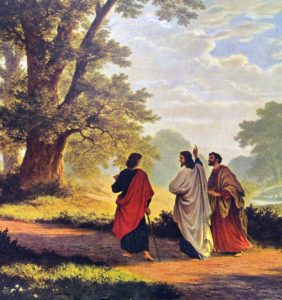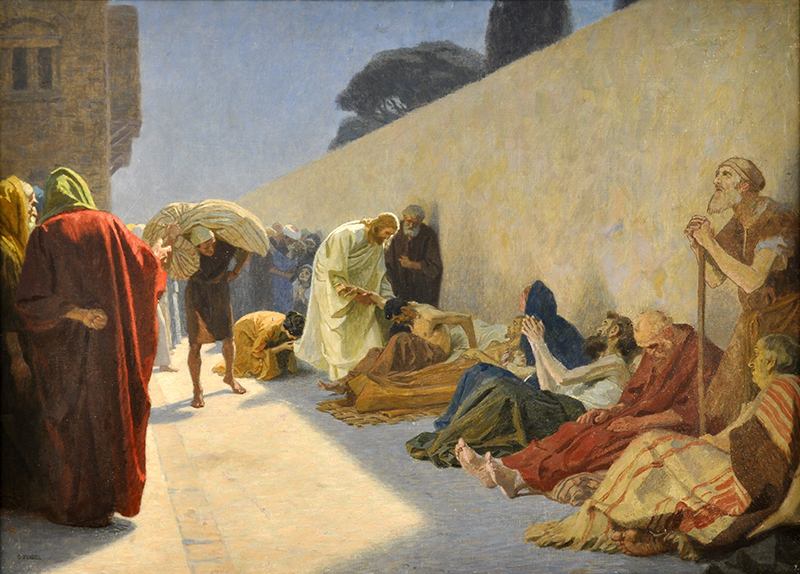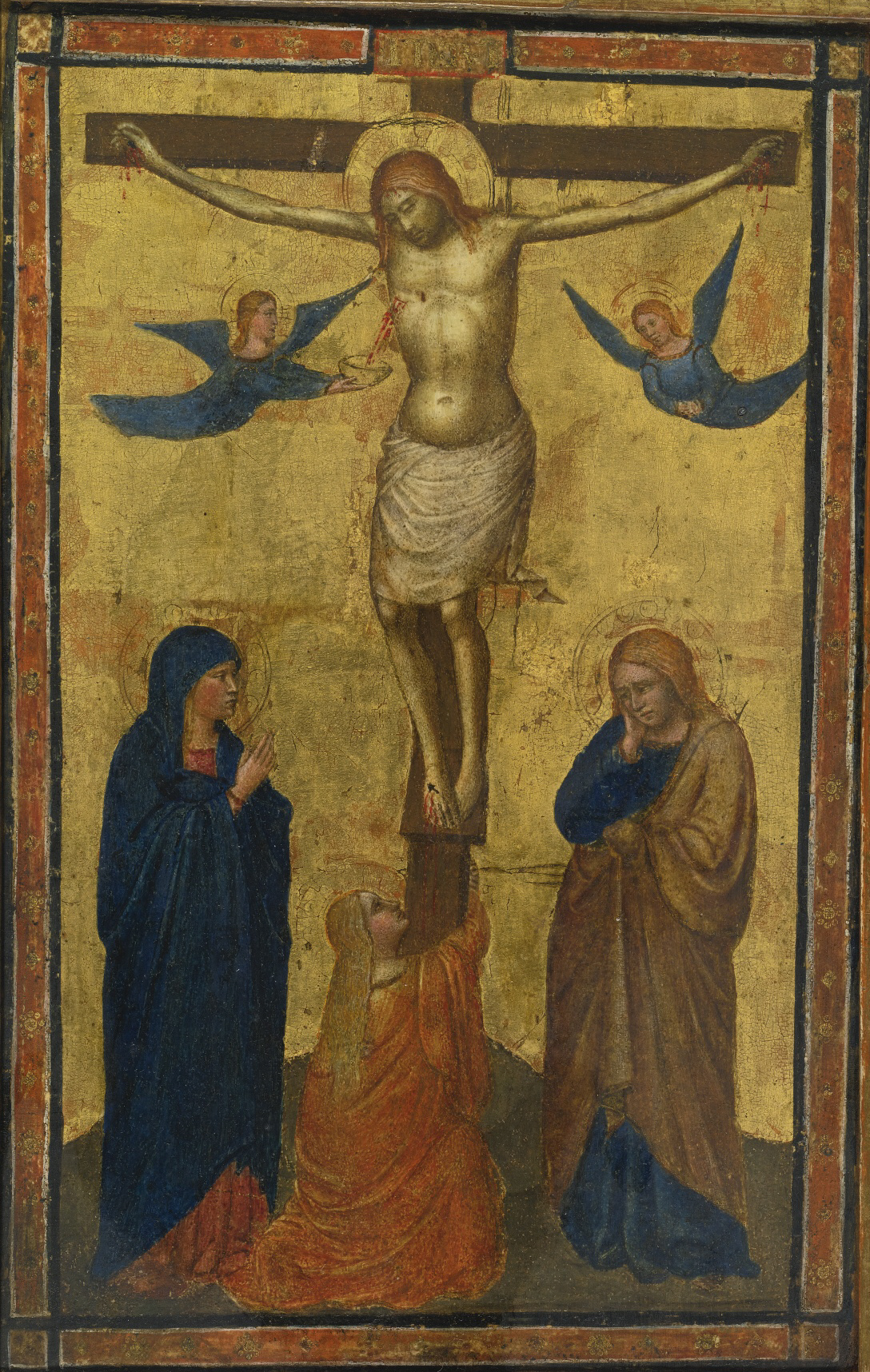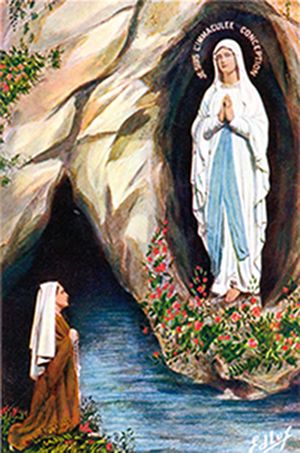Careful What You Ask For
“If God would only just tell me what to do,” is something many of us may say in the midst of a dilemma.
However, it is a safe bet that, deep down, we prefer He doesn’t, as it may actually increase the burden rather than lift it, because we probably would not do it anyway.
After all, we have a hard enough time just trying to do the things we know we ought to do, but we are thankfully in good company with St. Paul on that issue (cf. Rom 7:19).
 Still, there are times when we find ourselves looking for some sign from God and are disappointed when He does not come through as we had hoped. But amidst that, we can end up missing a valuable lesson that He wishes us to take much to heart. Like the two disciples on the road to Emmaus, we are blinded to the reality of our Lord’s close presence by a misplaced expectation (cf. Lk. 24:13 ff.). Our all-too-human desire for a special sign or wonder, something our Lord openly complains about in the Gospel, adversely affects the kind of faith God desires from us. (cf. Jn. 4:48)
Still, there are times when we find ourselves looking for some sign from God and are disappointed when He does not come through as we had hoped. But amidst that, we can end up missing a valuable lesson that He wishes us to take much to heart. Like the two disciples on the road to Emmaus, we are blinded to the reality of our Lord’s close presence by a misplaced expectation (cf. Lk. 24:13 ff.). Our all-too-human desire for a special sign or wonder, something our Lord openly complains about in the Gospel, adversely affects the kind of faith God desires from us. (cf. Jn. 4:48)
Blessed are those who have not seen and believed. (Jn. 20:29)
So while supernatural faith can be supported by miracles, and this only occasionally, it certainly cannot be sustained by them.
A general glance at our Lord’s life proves this. True, while Christ needed to utilize miracles to support His claim to be God, we must notice not only where and to what extent He worked them, but also what happened over the course of time–and a short time at that. We must further observe that the first ten-elevenths of His life were spent not working any miracles at all. He blended in so well with His Nazarene countrymen those thirty years that He appeared to be as ordinary as they were in many ways. How does this man know letters having never learned? (Jn. 7:15) Not once did He utilize His divine power to ease His lot.

Once our Lord began working miracles, the great majority of them were performed in Galilee, especially in or around the coastal cities, and these mostly during the second year of His public life. Not many happened in Nazareth due to the lack of faith there (cf. Mt. 13:58). Only three were worked in Jerusalem, the very capital of Judaism and seat of the Temple, and each caused increasing animosity from the powers-that-be.
After Peter confesses Him to be the Christ and Son of the living God at the close of that ministerial year, the frequency drops off significantly during the third. Christ had been declared to be an Object of supernatural faith, and so He was transitioning belief upon His word and manner with fewer miracles in support, especially having proclaimed Himself as the Bread of Life shortly after that.
At the same time, while we can attribute no miscalculation on our Lord’s part, people had actually grown accustomed to His miracles; we observe that the crowds thinned out, and He was sought out more for the wrong reasons, as if His divine power was some handy mechanism to turn stones into bread, treading into dangerous territory of replacing the God of wonders with the wonders of God. (As a side note, it seems our Lord was regularly encountering His first temptation attitudinally during His public ministry; He would encounter his second during His Passion when Herod besought Him to work some wonders; His third when He was taunted to come down from the Cross in exchange for belief in Him.)

By the time Christ is crucified – going to His Death adamant about His Resurrection on the third day, the greatest miracle ever – we can only ask ourselves where were some of the thousands who witnessed and ate from the multiplication of the loaves? Where were some of those He healed in abundance? We don’t even hear about Lazarus being there. And the Apostles had only one token representative. A mere handful of spectators stood at varying distances, but of them only one – our most sorrowful Mother – expected the Resurrection.
When the going got tough, all the miracles were quickly forgotten, and so was the promise of the Resurrection.
To repeat, faith can be somewhat supported by miracles, but hardly sustained by them. Even at Fatima, the largest public miracle in human history witnessed by over seventy thousand souls – atheists among them – did not serve to bring about a profound, prolonged, and widespread conversion in the world. It has been almost forgotten in many sectors.
Should we sanely be expecting something else on a grand scale? Or even a smaller scale? Have we forgotten our childhood lesson about the consequences of provoking dad to get up from his chair after not heeding his warnings about our conduct? Remember that the Flood was a miracle, too, and this seems to be the point in history where we might be.
Blessed are those who have not seen and believed.
 With the feast of our Lady of Lourdes today, we certainly recount the details of the Blessed Mother’s appearance to St. Bernadette, the miraculous waters that flowed (and continue to), and the numerous miracles of healing that have occurred since, even into our own day. Benedictus Deus! He is a loving Father and so has never ceased to visit His world with special miracles, especially in times of great faith – or faithful suffering. But like in the Gospel, not everyone gets one. Comparatively few do, and while miracles can be asked for on occasion with all humility and detachment, we do not need them as much as we think.
With the feast of our Lady of Lourdes today, we certainly recount the details of the Blessed Mother’s appearance to St. Bernadette, the miraculous waters that flowed (and continue to), and the numerous miracles of healing that have occurred since, even into our own day. Benedictus Deus! He is a loving Father and so has never ceased to visit His world with special miracles, especially in times of great faith – or faithful suffering. But like in the Gospel, not everyone gets one. Comparatively few do, and while miracles can be asked for on occasion with all humility and detachment, we do not need them as much as we think.
That is because the dilemma about how to get to heaven is answered by faith. God has told us what to do, how to live, and what to expect in life. And our desire for a miracle is answered by Holy Mass with the daily one our Lord left us on our altars until the end of time. The Holy Eucharist is the miracle par excellence subject not to the human eye, but the eye of that same faith which lets in divine light and assents to the reality of the Resurrection, giving us the strength to do what we ought.
Blessed are those who have not seen and believed.
February 11, 2021








